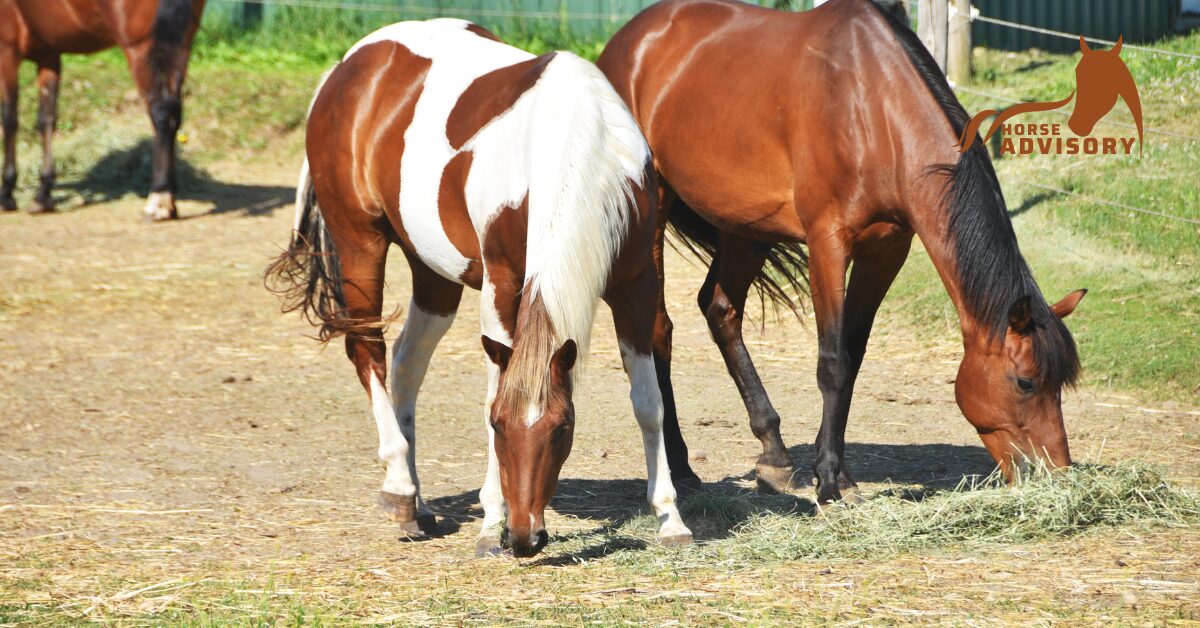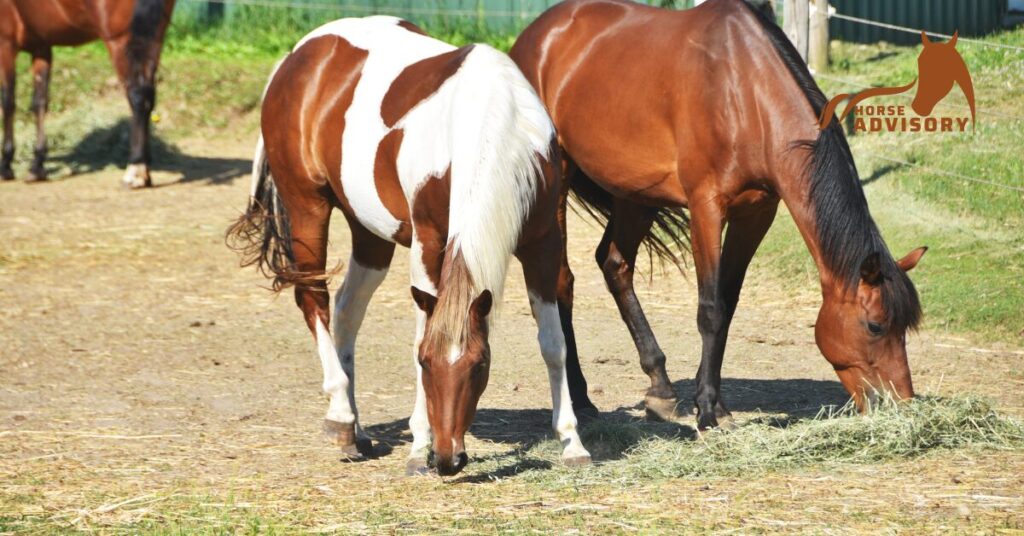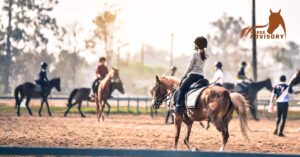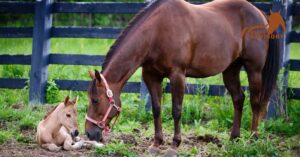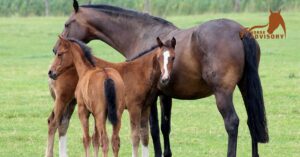Every horse owner or equestrian understands the joy of treating their horse, but it’s crucial to be mindful of what you feed them. Educating yourself on suitable and unsuitable foods ensures you can indulge your equine friend safely.
Horses can enjoy a variety of fruits and veggies like apples, carrots, celery, and melons, along with treats like peanut butter, oatmeal, or sugar cubes. However, moderation is key, even with safe options.
Equally important is understanding what horses shouldn’t eat. This post will offer a detailed list of both safe and unsafe foods, addressing common questions about equine nutrition.
Foods That Horses Can & Can’t Eat
Whether you’re giving your horse celery or sugar cubes, it’s crucial to view treats as just that – treats. Any food beyond your horse’s usual diet should be given sparingly. Many equine experts recommend limiting treats to once a day.
Excessive treat-giving might lead your horse to reject their regular diet, which provides essential nutrients, vitamins, and minerals for their health.
Before offering sugar cubes or high-sugar fruits, ensure your horse isn’t insulin-resistant. In such cases, opt for treats with lower sugar content.
Foods That Horses Can Safely Eat
Horses, like people, have individual preferences when it comes to treats. While one horse might enjoy apples, another might not fancy them. It’s essential to know which foods are safe for your horse to eat. When offering treats, always remove cores, pits, or stones, and consider cutting up hard fruits and veggies for easier consumption.
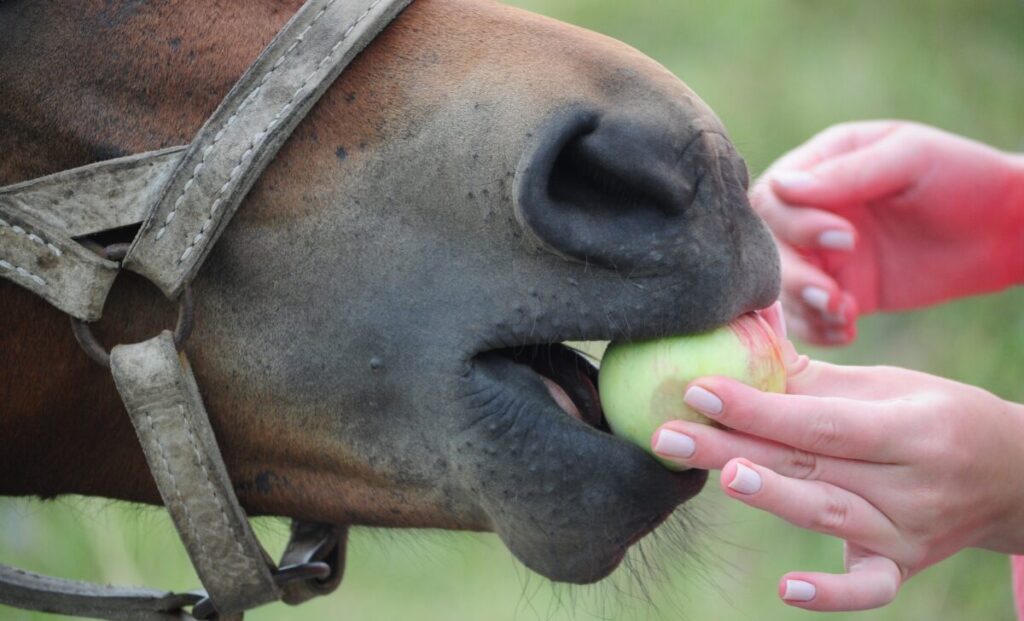
Here’s a list of foods that horses can safely enjoy in moderation:
- Apples (core removed)
- Applesauce
- Apricots (pit removed)
- Bananas
- Carrots
- Celery
- Cucumbers
- Grapes
- Green Beans
- Lettuce
- Mangoes
- Molasses
- Melon (rind removed)
- Oatmeal
- Oranges
- Peaches (pit removed)
- Pears (core removed)
- Peanut Butter
- Peppermints
- Pineapple pieces
- Plums (pit removed)
- Pretzels
- Pumpkin
- Raisins
- Snow Peas
- Strawberries
- Sugar Cubes
- Sunflower Seeds
- Watermelon
After introducing a new food, monitor your horse for a few hours to ensure there’s no allergic reaction, although rare.
Foods That Horses Shouldn’t Eat
It’s crucial to educate yourself and those around your horse about the dangers of feeding them inappropriate foods. Certain items can cause digestive issues or even be fatal to horses. Here’s a list of foods your horse should never consume:
- Avocado
- Bran
- Bread
- Broccoli
- Brussels Sprouts
- Cabbage
- Caffeine
- Cauliflower
- Chocolate
- Compost
- Dairy Products
- Garlic
- Kale
- Lawn Clippings
- Meat
- Onions
- Potatoes
- Rhubarb
- Stone Fruits
- Tomatoes
If you suspect your horse has ingested any of these items or anything else concerning, contacting your equine veterinarian is essential. While they may not always be able to alleviate your horse’s discomfort, informing them prepares them for potential complications. Always research unfamiliar foods before feeding them to your horse, as what works for one may not be suitable for another. Ultimately, your horse’s well-being falls under your responsibility, and it’s crucial to prioritize their health and comfort.
Common Questions Regarding a Horse’s Diet
There is significant confusion regarding what foods are safe for horses to eat. Some horse owners believe cucumbers are acceptable treats, while others disagree. Here are some common questions about adding treats to a horse’s diet.
Can horses eat celery?
Yes, horses can eat celery in moderation. It can be a healthy snack for them, but it should be chopped into small pieces to prevent choking.
Can horses eat cabbage?
Yes, horses can eat cabbage, but it should be given in small amounts as it can cause gas and digestive issues if consumed in large quantities.
Can horses eat lettuce?
Yes, horses can eat lettuce, but it’s not a particularly nutritious food for them. It’s fine as an occasional treat, but it shouldn’t make up a significant portion of their diet.
Can horses eat watermelon?
Yes, horses can eat watermelon, including the rind and seeds. It can be a refreshing treat for them in hot weather, but it should be given in moderation due to its high sugar content.
Can horses eat pumpkin?
Yes, horses can eat pumpkin. It’s a nutritious treat for them, especially during the fall season. Make sure to remove any seeds and cut it into small, manageable pieces before feeding.
Can horses eat bananas?
Yes, horses can eat bananas. They are safe and can be a tasty treat for them. Just remember to remove the peel and cut the banana into smaller pieces to prevent choking.
Can horses eat oranges?
Yes, horses can eat oranges, but they should be given in moderation. Some horses enjoy the taste, but others may not. Make sure to remove any seeds and peel before feeding.
Can horses eat strawberries?
Yes, horses can eat strawberries. They are safe and can be a sweet treat for them. Just make sure to remove the stems and cut the strawberries into smaller pieces before feeding.
Can horses consume meat?
Meat is not suitable for horses as they are strict herbivores, with dental and digestive systems evolved for plant consumption. While there are anecdotes of wild horses eating meat, there is no scientific research on the long-term effects of meat on their digestive health.
Are cucumbers safe for horses to eat?
Yes! Cucumbers make excellent treats for horses, especially those with insulin resistance. However, it’s crucial to slice cucumbers into small pieces to prevent choking since they are hard and round. Horses enjoy cucumbers either on their own or mixed into their regular feed.
Cucumbers boast high water content and nutritional value, contributing to your horse’s overall health while serving as a reward. Some horses may experience gas from cucumbers, so it’s advisable to limit intake to 1 or 2 cucumbers per week.
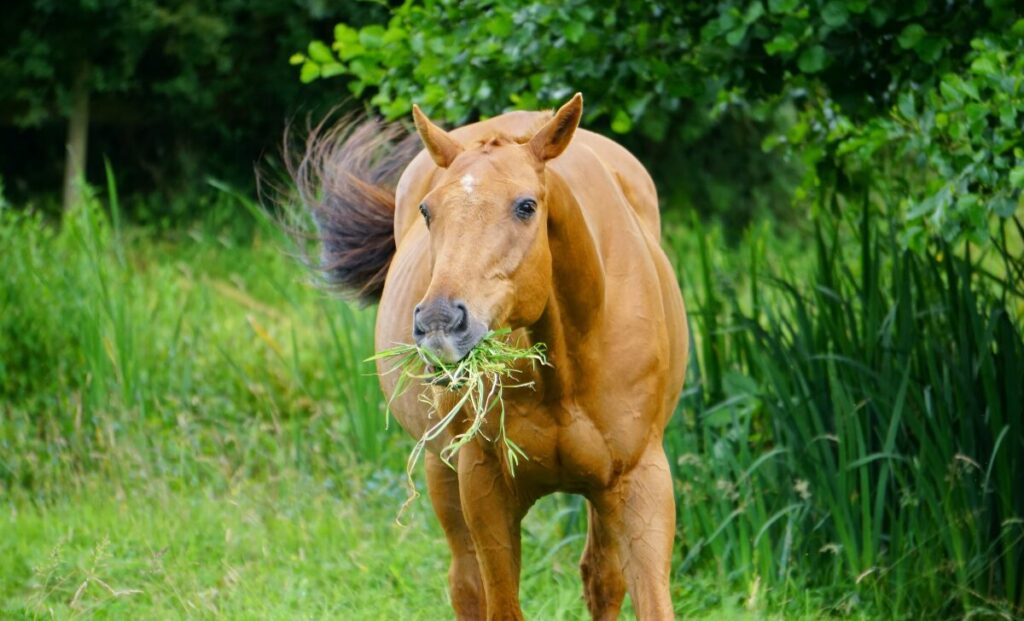
What to Do If Your Horse Eats Something They Shouldn’t
If your horse consumes something it shouldn’t, staying calm is crucial. Firstly, observe your horse for any unusual behavior like lying down. While it’s generally not alarming, if they show signs of discomfort, encourage them to stand. Walking them might help relieve any discomfort caused by gas or digestive issues.
Immediately reach out to your equine vet to explain the situation and any observed symptoms. It’s essential not to delay seeking professional advice.
Afterwards, investigate what caused the incident and remove harmful items from your horse’s environment. Consider allergy testing and ensure that potentially harmful items are always inaccessible to your horse.
By taking these steps, you can effectively handle situations where your horse ingests something inappropriate while ensuring their diet remains nutritious and balanced. Offering a variety of fruits and vegetables can not only add diversity to their diet but also provide essential nutrients and vitamins.
